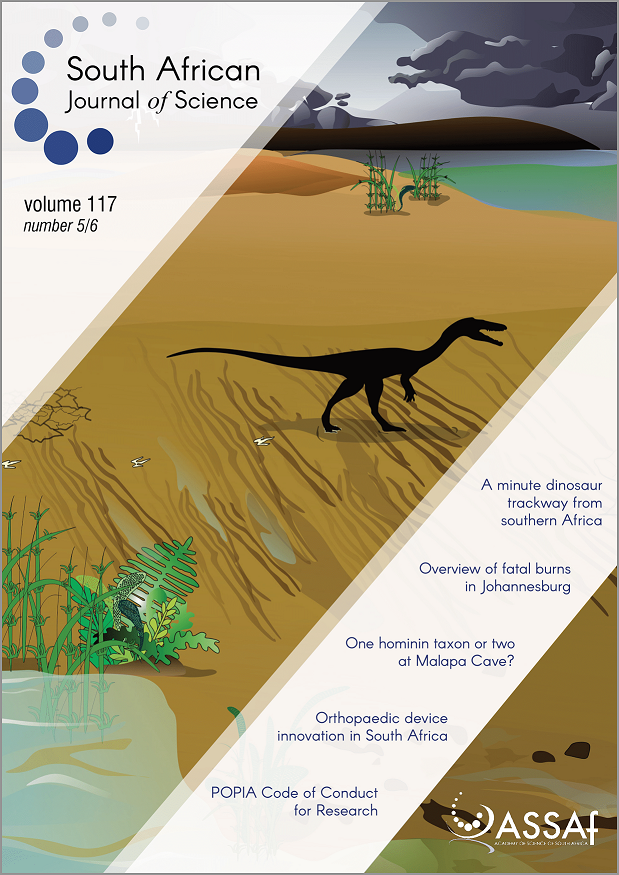Orthopaedic device innovation in South Africa: A study of patenting activity
DOI:
https://doi.org/10.17159/sajs.2021/8399Keywords:
social network analysis, patent, knowledge development, knowledge exchange, innovation systemAbstract
We assessed knowledge development and exchange among actors who patent orthopaedic devices in South Africa over the period 2000–2015. A social network analysis was performed on bibliometric data using co-inventorship on patents as an indicator of collaboration between different organisations, with a focus on the spatial and sectoral contexts. Network metrics and innovation system indices are used to describe knowledge development and exchange. The results show that university, healthcare and industry organisations have primarily been responsible for increased patenting over time. The key actors were a set of industry actors – a national actor and its US partner – who have patented many devices jointly. National universities were found to make a small contribution, and science councils were found to be absent, despite the efforts in the changing innovation landscape to encourage publicly financed research organisations to protect their intellectual property. The collaboration networks were found to be sparse and disjointed, with many actors – largely from the private healthcare sector – patenting in isolation.
Significance:
- The considerable number of patents filed by private sector clinicians in orthopaedic device innovation in their personal capacity is highlighted.
- Few patents emanate from national universities, and science council actors are largely absent, despite the Intellectual Property Rights from Publicly Financed Research and Development Act to protect intellectual property emanating from public research organisations.
- Patenting networks are more fragmented than are scientific publication networks.
Open data set: https://doi.org/10.25375/uct.14417246.v1
Downloads
Published
Issue
Section
License

All articles are published under a Creative Commons Attribution 4.0 International Licence
Copyright is retained by the authors. Readers are welcome to reproduce, share and adapt the content without permission provided the source is attributed.
Disclaimer: The publisher and editors accept no responsibility for statements made by the authors
How to Cite
- Abstract 806
- PDF 900
- EPUB 158
- XML 185
- Supplementary Material 65
Funding data
-
National Research Foundation
Grant numbers 82624 -
Department of Science and Innovation, South Africa
Grant numbers 98788












.png)